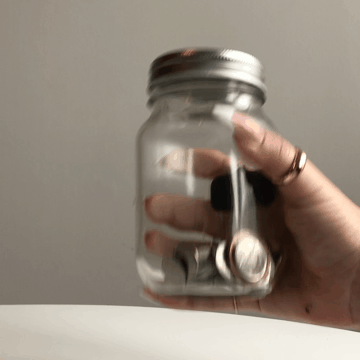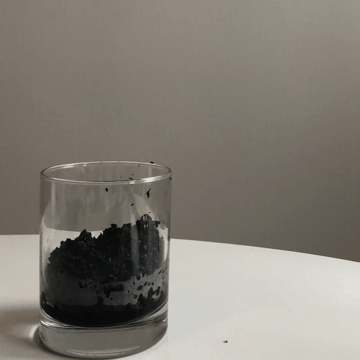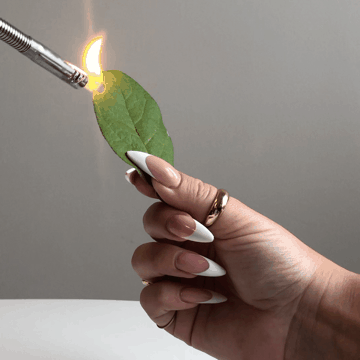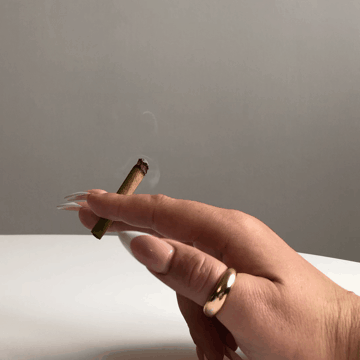This is the third post in Generator’s ‘Governance Reimaginings’ blog series. You can find all posts in the series here, and everything we’ve published related to boards here. In this post, Shakespeare in the Ruff’s former Associate Artistic Director, desirée leverenz, offers a personal response to a Governance Reimaginings session led by Zainab Amadahy.
My name is desirée and i am writing this blog post as part of generator’s governance re-imagining series.
You’ll find in this post that I am going to center myself a lot. This is not an attempt to distance you from my words, but rather invite you into my journey, my experience, my thoughts, my spirit. I feel like in writing so often, I search for my own opinion by the author telling me how “we feel.” We are tired of the state of affairs, we must work hard to overturn them, we feel happy, we love tik tok, we are quirky, we love femininity and uphold it in a patriarchal world (I am dragging myself here, and I hope you can chuckle with me).
One time, an academic advisor told me I should take out “I feel,” statements from my writing, because for some reason, feeling isn’t legitimized in writing…
This piece is filled with feelings.
I am working, and I believe many people are, to transform structures and institutions that are doing a disservice to us, and our neighbors. And when I say “working” i mean working in the most absolute capitalist- possible, in a way that i center the work. When the work or the art, or the people need me to rest so i can be awake for the next part, i will rest.
Zainab Amadahy showed me that centering my own healing will lead to the transformation i am working for.
The structure, function, and existence of non profit boards, and the default ways for them to function within canada, upholds patriarchy, colonization, capitalism, white supremacy, all the things we are working hard to eradicate right now. So I go to trainings, seminars, anti-oppression workshops, I learn from new teachers, I use the word “decolonize” a lot. But…
I feel like I’m not transforming. I feel like I am learning details, but nothing is changing. I feel stuck. I feel like I can’t imagine a future.
I don’t really know what other structures look like. This happens to me when I talk about an anti-hero’s journey or non-linear storytelling. There’s no other structure for it. What can other structures even look like? If I was a cool highschool teacher I would hold a piece of paper with a triangle on it and then crumple it and say that’s the structure I want.
How can I say I want others to have power and say that I want to abolish power all in one breath? The questions of transformation and reimagining feel filled with polarity in a way that I actually can’t feel the transformation, and instead just details of the polarity. I get frustrated when people ask me if not this then what. I get even more frustrated when people ask me what decolonization looks like. It feels connected for me.
How do we grow into different ways of thinking and believing together as a society when we can’t think and dream the potential that we hold within ourselves first?
Part of the reason I am intentionally centering myself in this writing, is because Zainab shared exactly that. She began the conversation with telling us that she was not there to critique current models of governance, but rather offer her theory of change: “When individuals change, their organization changes. How do we want to be? Who do we want to be? How do our organizations reflect who we are back to us?”
Well, I can tell you this much, dear reader: I do not like most of the organizations (if any), around me, and what does that tell me about myself?
It would be a dishonour to Zainab if I offered to share her theory and teachings in a regurgitative way. To me, that feels like the opposite of her teachings. So instead I offer you my experience of the conversation, and with it my curiosities and wonders and dreams that were facilitated by these teachings.
I wonder where the cells of my body end?
I wonder where the tips of my fingers, and the electricity in this keyboard intersect, and what the difference in those atoms look like?
I wonder if the atoms love each other?
I wonder what their relations are?
I wonder if they are like air and earth, or instead like different states of water?
I wonder how that feeling you get when your lover sings along to music softly is felt by a plant?
I wonder what could happen if we were to center anything else other than ourselves?
I wonder if humans intentionally stepped outside of this human-oid/meat sack centered orbit, and put anything else inside of it?
I wonder how that would feel?
Zainab says that: “cultural wisdom has been villainized because of separation, competition and inequality.”
I wonder what happens if I center my ancestors in my ways of learning (my ways of knowing)? I wonder about the healing and work I would have to do in order to even access those teachings? I wonder what happens if I not only think about, but embody the idea that all of existence is in relation to each other – including my ancestors, and the future relations I will have?
I wonder what happens when I stop villainizing spirituality? I wonder how this will change my conversations with my friends, my colleagues, my boards?
I wonder how that would feel?
Zainab spoke about feelings and transformation.
I felt defensive and frustrated about some of Zainab’s sentiments. I felt fiery, and sparked. So much that I stopped listening.
I asked later:
ISN’T SAYING THERE’S NO SPACE FOR FEELINGS IN THE REVOLUTION JUST RE-ENACTING PATRIARCHAL IDEALS?!?!
Zainab shared that there’s space for it, but that the work can’t happen from there, and instead offered that it needs to happen from a place of love.
She also suggested that maybe that was a wound I needed to heal.
She was right. I could easily go into a spiral rant about how offended i was, and frustrated, but in an attempt to center my own healing i will tell you that Zainab was right. I have often felt like I offer feelings and emotion, and I make it acceptable and necessary to bring those things into professional settings; so, when Zainab said feelings weren’t necessary, (and my feelings are so intertwined to my self worth) I felt like I wasn’t necessary to those spaces.
I wonder what happens when instead of linking our self worth to what we bring to the room, we connect our self worth to the quality of connections that we hold with the universe?
I wonder what happens when we operate from places of love and generosity and spirit?
I wonder what happens when we carry all of life in all of its relations, with us?
Zainab says that even the things we don’t like are our relatives.
They are an expression of us. So, I wonder what happens when we love ourselves so that we can heal ourselves.
I wonder if healing ourselves, could heal our relations which could heal the way our relations are organized.
We cannot heal structures with more structures. We must find ways to exchange with anything and everything. We must stop delineating experiences. From human to human, from energy to energy.
And perhaps then our organizations will serve us, because they will be us.
I wonder.
Governance Reimaginings asks how we can deconstruct inherited governance structures to create systems of accountability and community care that support, and are aligned with, the values of the organizations and individuals they serve. Structured as a knowledge exchange between Generator, Shakespeare in the Ruff, and the Toronto Dance Community Love-in, Governance Reimaginings took place between April-December 2021 and featured a series of instigations by invited guest speakers. We gratefully acknowledge the support of the Chalmers Family Fund, administered by the Ontario Arts Council, for this project.
desirée leverenz is a theatre director, creator, mover and shaker, who will never wash treaty 6 soil from beneath her feet. she exists here to bring questions, and reveal stories and conversations, for artists and audiences alike, so that we can all dream of a better future together. desirée is attracted to epic stories: epic in content, in aesthetic, and in spirit. she’s received institutional education from university of alberta (BA), and york university (MFA), and has directed in large institutions, and quiet back alleys. desirée has a particular affinity for working on art that is devised in nature and loves to play with traditional text in a way to transform ideas and institutions that are no longer serving us.







